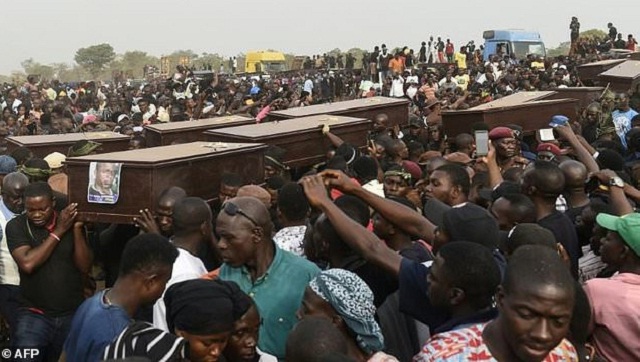
Nobel laureate Wole Soyinka, whose property in southwest Nigeria was overrun with cattle, has even said the herders had “declared war against the nation”.
“Their weapon is undiluted terror,” he wrote in January. “Why have they been permitted to become a menace to the rest of us?”
NUJ president Waheed Odusile said the overall media coverage of the conflict was fair and there were expected differences of opinion.
But he added: “What is disturbing is the ethnic profiling of the conflict. They tend to make the violence look like a north-south, Christian-Muslim problem.”
Describing all herdsmen “as Fulani Muslim is dangerous and can jeopardise the peace and unity of Nigeria”, he added, warning the media “not to heat up the polity by playing up the nation’s faultlines”.
MACBAN for its part has blamed cattle rustlers and foreign criminals for the frequent raids on farming communities.
As elsewhere around the world, Nigerian media organisations, reflect the views of their owners — many of them politicians or the politically well-connected.
But readers increasingly needed to be cautious about what they were being told, according to David Ajikobi, Nigeria director of fact-checking website Africa Check.
“It’s not true that every herdsman is Fulani,” he said, pointing to the involvement of Yoruba and Igbo in cattle herding.
“A blanket categorisation of herders as Fulani is stereotyping the issue and such a tendency should be avoided.”
 The Independent Uganda: You get the Truth we Pay the Price
The Independent Uganda: You get the Truth we Pay the Price



